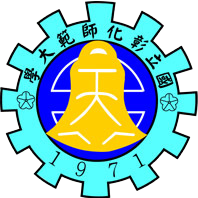SDG1.4.2 Local start-up financial assistance Year: 2021
To support and encourage local enterprises’ sustainable development, NCUE explores their uniqueness and provides various types of support to encourage the traditional local industries such as sanitary ware and mechanical processing to move towards sustainable development. Leveraging industry–official–university cooperation and helping local industries apply for such programmes as Small Business Innovation Research (SBIR) helps enterprises move towards sustainable development. The specific measures are as follows:
1.With the Innovation Incubation Centre of the Research and Development Department as the core, NCUE continuously allocates consultation resources for the deep cultivation of local enterprises.
NCUE’s units, including the Innovation Incubation Centre of the Research and Development Department , the Department of Business Administration, and the Environmental Education Centre, continuously provide consultations to support the industrial technology upgrades of local enterprises and guide the enterprises in drafting plans and applying for government R&D subsidies. These efforts cultivate robust industrial cooperation in the Taichung–Changhua-Nantou Region and widen the scope of the consultation benefits.
For example, Innovation Incubation Centre of the Research and Development Department collaborated with the industry, government, and academia in the Taichung-Changhua area to implement the Caring for Local Industrial Park Project/Innovation Project/SBIR, among others. Further, it encouraged students to participate in the national industry-academia innovation competition held for university/college students through industry-academia collaboration and student internships. The purpose is steering students toward committed education in their area of specialization, and practically applying their knowledge so as to strengthen the alignment between the industry through strategic industry-academia-research collaboration, and promote the convergence of academia and industrial practice to cultivate relevant technical practical talents for the industry.
2.NCUE develops sustainable enterprises through its University Social Responsibility (USR) Projects.
Thanks to the promotion of the USR program, the Department of Business Administration created the first USR student volunteer club. This was to steer students toward establishing an intelligent e-commerce platform with the industry brand Tavocol. It allows students to apply their professional studies and attain a combination of theory and practice and provides opportunities for innovation and entrepreneurship. In adopting an innovative partnership between manufacturers and businesses, the Tavocol e-commerce platform facilitates the digital transformation of the socking industry and the fulfillment of the manufacturers’ corporate social responsibility (CSR) by allocating 2% of the proceeds as the CSR feedback fund for the establishment of a joint market. Seven companies have joined the platform and followed a very high standard in screening socks. More than 180 products are available on the shelves, and the number is still growing.
The Environmental Education Service Centre takes the Haha Fisheries as a model and expands cooperation areas with the Changhua County Aquaculture Association and the Youth Aquaculture Association. The associations’ core members serve as tutors who guide the students towards a deep understanding of the local industry. The Centre also assists the locals with breeding fish in an environmentally friendly way, promotes the Food Traceability System, helps find comprehensive solutions to such problems as the sudden deaths of Asian hard clams, and actively cooperates with the communities to implement and apply relevant projects to improve the outcomes of fishing villages, transform the communities, train new talent, and achieve sustainable environmental management.
NCUE’s Innovation Incubation Centre of the Research and Development Department , Department of Business Administration, Environmental Education Centre, and faculty members help local enterprises obtain relevant R&D subsidies, as shown in Annex 1.4.2A.
|
Link to supporting information |
Plan/policy |
Approved amount for the projects |
|
Innovation Incubation Centre of the Research and Development Department |
Academia’s facilitation of local industrial value addition/park innovation program/SBIR program |
1. Four applications for local industrial value addition projects promoted by the academia, two approved, and 1,048,000 NTD in grants 2. Two applications for the Park Innovation Program and 4,653,715 NTD in total funding 3. Five SBIR applications, three approved, 2,479,615 NTD in grants |
|
University Social Responsibility (USR) Project ‘Shetou Sock Projects: Innovation, Entrepreneurship, Revitalization’ |
250 million NTD approved by the USR Projects |
|
|
University Social Responsibility (USR) Projects ‘Deep Cultivation in Fangyuan’ and ‘Joining Hands in Dacheng: Changhua Twin Cities’ Industrial and Environmental Sustainability’ |
1. 350 million NTD approved by the USR Projects 2. Assisted in two applications for the food and agriculture education project |
|
|
Faculty members |
Industry–University Cooperation Project (Please refer to Annex 1.4.2A) |
6,379,934 for MOST programs and 340,900,141 NTD for non-MOST programs for a total of 347,280,075 NTD |

